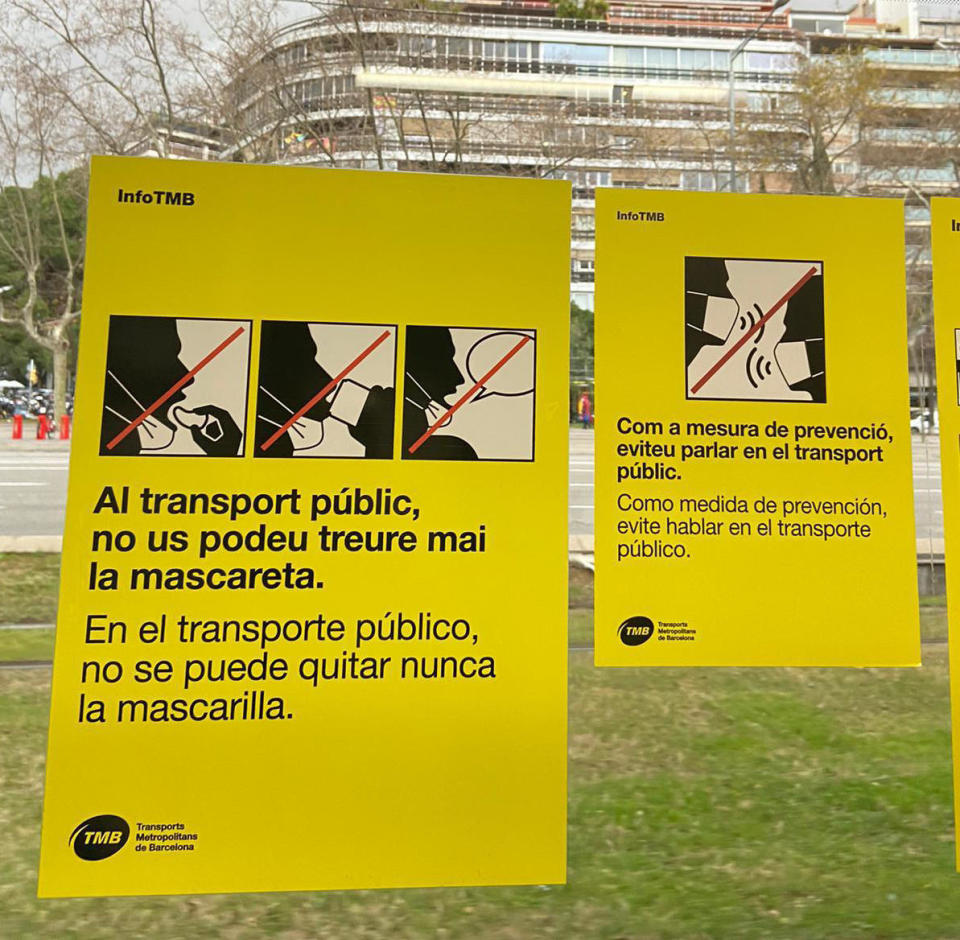French health officials urge no talking on public transit to stop virus
France's National Academy of Medicine is advising that people keep quiet on public transportation — and whenever social distancing is not possible — to help stop the spread of COVID-19.
"The mandatory wearing of masks on public transport, where social distancing is not possible, should be accompanied by one very simple precaution: avoid talking and making phone calls," the academy said in a statement Friday.
Academy member Patrick Berche told BFM TV that there's no problem if there are only two or three people in a subway car, but when people are packed closer together, it makes sense not to talk, according to Reuters. He specified that this is "not an obligation" but a "recommendation."
According to a recent study by researchers at the University of Cambridge and Imperial College London, having a conversation in a place that is poorly ventilated can spread respiratory droplets carrying the virus far more than a short cough.
COVID-19 is primarily spread from an infected person to others through respiratory droplets and aerosols created when coughing, sneezing, or simply talking or breathing.
Three scientists give their best advice on how to protect yourself from COVID-19
Larger droplets fall to the ground within seconds or minutes, while smaller particles, sometimes called aerosols, can linger in the air. Speaking generates small droplets that can hang in the air, spread and accumulate easier in an area without adequate ventilation, while a cough produces larger droplets which are more likely to reach the ground.
The research also suggests it takes "only a few seconds" for virus particles at levels above the amount needed to infect a person to travel a distance of 6 and a half feet.
France's government may impose a third lockdown in the coming days if the current 6pm to 6am nationwide curfew doesn't result in a significant drop in infections.
Restaurants, tourist sites and many other public places have been closed since October in France. But COVID-19 infections, hospitalizations and deaths have started rising again this month.
Similar rules against talking on public transit have been introduced in parts of Spain.
Catalonia's regional government asked in November that all public transport users refrain from speaking, eating and drinking to prevent further spreading the virus, according to local news media. The measure is a recommendation, and non-compliance will not lead to any sanctions, authorities said.

Officials in Spain's Balearic Islands also asked passengers on public transport to make their journeys in silence.
María Cruz Minguillón, a researcher at the Spanish National Research Council explained that "people shouting or talking on the phone can emit up to 50 times more particles." And she said "not talking and properly wearing a face mask lowers the risk significantly."
Amid rising infections and hospitalizations throughout the continent, European nations have begun to tighten mask regulations.
Germany announced last week that all individuals in the country would be required to wear medical-grade face masks, as opposed to cloth coverings, when in the workplace or on public transportation. Austria introduced the same step on Monday.
In the United States, President Biden signed an executive order last week requiring mask-wearing for interstate travel. The new rules specify travelers must wear masks in airports and on commercial aircraft, trains, public boats including ferries, and inter-city buses.
Debate rages over schools as patchwork COVID policies cause chaos
Biden reverses Trump's transgender military ban
Senate to receive article of impeachment, triggering Trump trial

